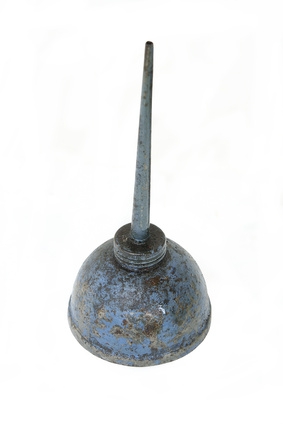
Individuals and businesses are both required to follow federal guidelines from the U.S. Environmental Protection Agency (EPA) when working with and storing waste or used oil. A variety of sources produce used oil, so it is imperative that the regulations are referenced in order to avoid costly fines and fees when working with oil. These regulations apply to disposing of used oil and also to labeling used oil.
When determining whether waste oil is classified by the EPA as used oil, consider its origin. All animal- and vegetable-based oils are excluded from the regulations for used oil. Oil that is either made from synthetic materials or refined from crude oil may be considered used oil. Any synthetic or crude based oil can be considered used if it is used as: lubricant, hydraulic fluid, for heat transfer or buoyancy. Oils that fit this criteria but have not actually been used, such as oil that has spilled from its container, are not considered used. Finally, if oil has been contaminated either through use or exposure to other chemicals, it is considered used and must be labeled according to EPA guidelines.
Regulations for labeling and storing waste oil, which is considered used oil, have been set by the EPA. These regulations are called management standards and require that both individuals and businesses label and store used oil according to federal guidelines. All used oil must be stored in a container or tank that can be closed with a screw top lid. These containers and tanks must also be free from rust and leaks and can not have previously stored any food or chemicals. All containers and tanks containing used oil must be clearly labeled with the words "Used Oil." Containers used to transport used oil must also be labeled with an EPA 12-digit identification number.
Used oil can also be taken to public collection centers to be recycled. Businesses that need to handle used oil can follow EPA guidelines that relieve them from the responsibility and liability of clean-up costs associated with handling used oil. To qualify, businesses must properly label and store used oil, avoid mixing used oil with hazardous substances and accept used oil from individuals and send it to be recycled.